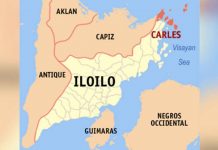ILOILO City – Stakeholders in Western Visayas gathered in this city recently for a consultation on the ways to safeguard children from “unwanted websites.”
The event was the last leg of the series of consultations held by the Department of Information and Communications Technology’s Consumer Protection Group.
DICT regional director Antonio Edward Padre said they were gathering inputs on how to better educate children on the proper use of the internet.
Through its Juan Konek project the DICT has placed more than 120 Wi-Fi access points in public schools, plazas, parks, and other public areas – providing the public, including children, access to the internet free of charge.
The agency monitors the websites that users were accessing through the free public Wi-Fi but Padre said they wanted to know if consumers, particularly children, were getting into “unwanted websites.”
Contents of “unwanted websites” include explicit sex and gambling, Padre said.
Unwanted websites accessed through the free public Wi-Fi were automatically blocked – but only those the government has identified, he pointed out.
“The cyber world continues to produce unwanted websites,” Padre said.
This move becomes even more important as the Department of Education is moving toward online education – which also makes it difficult for the government to restrict the age of users accessing the public Wi-Fi.
One of the around 60 stakeholders present at the consultation last Thursday, from Aklan, cited a case of students accessing a pornographic website when they were supposedly doing research, said Padre.
“We transmitted the information to our national operations center in Manila,” he said. “They have blocked the site already, and we have notified the technical staff of the DICT assigned to the Juan Konek project to check if the site was still accessible.”
During the consultation the stakeholders came up with dos and don’ts among children when using the Internet and measures to strengthen the monitoring of the public’s access to unwanted websites, among other recommendations, said Padre.
These recommendations will be added to the draft policy being prepared by the DICT’s Consumer Protection Group to be launched by the end of the year and pitched for President Rodrigo Duterte’s approval. (With Philippine News Agency/PN)



